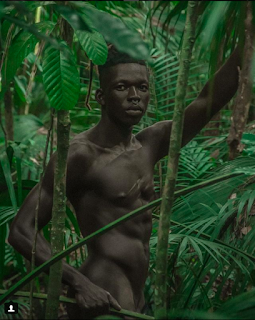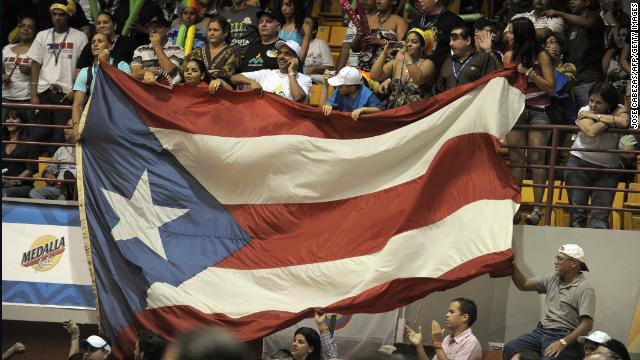 |
Dilma Rousseff defends herself before
the Brazilian Senate
(Independente) |
It is now official; after the two-week façade of the
Rio Olympics allowed
Brazil to project a positive international image of itself, its sidelined
Dilma Rousseff, democratically elected in 2010 and 2014, has been ousted from her post. This past Wednesday, August 31, according to the dictates of Brazil's post-dictatorship federal constitution and by a vote of 61-20 in Brazil's Senate, she has been officially removed from office. A second vote failed to reach the majority required to bar her from running for office again. Rousseff's former vice president, now acting president
Michel Temer, of the opposition
PMDB Party, assumes the mantle of power. Temer was sworn in two hours after Dilma was out, and now will hold office, unless he too is impeached, on far more solid grounds than Rousseff,
given his alleged involvement in multiple corruptions schemes, resigns or falls ill, until 2018.
(I should note that Chamber of Deputies also called for Temer's impeachment in 2015, but that lower house's former president,
Eduardo Cunha, who was third in line to the presidency, blocked the push. In April of this year, a Supreme Court Judge, Mello, ruled that the lower house vote to impeach Temer could proceed. The likelihood of that is slim unless significantly more information about Temer's links to corruption receive a public airing. In any case, other parties would have to ally with opponents of his ruling PMDB party to push through a vote. Cunha, for his part, was suspended as Chamber President in May of this year because the Supreme Court ruled he intimidated fellow lawmakers and obstructed investigation into his receipt of bribes; he also has been linked to money laundering schemes involving Petrobras.)
Before the final vote, which required a total of 53 senators to strip her of her position, Rousseff
delivered a passionate self-defense outlining how the entire impeachment process was not simply an attack on her, Brazil's first woman president and representative of the
Workers' Party, but also a major blow against
democracy itself in Brazil. She cited predecessors such as
Juscelino Kubitschek, the visionary president behind the construction of Brazil's third and current capital,
Brasília, who was nearly toppled several several times, and
João Goulart, whose overthrow led to two decades of dictatorship. Her lawyer,
José Eduardo Cardozo, underlined in his written defense of Rousseff that the main aim of the impeachment was not to punish Rousseff for her budget manipulations,
which a Senate report found did not amount to an impeachable crime, but rather, as wiretaps released by the
Folha de São Paulo made clear, to push her out in order to eventually quash the ongoing and metastasizing
Lava Jato corruption investigation involving the state oil company
Petrobras, construction firms, lobbyists, and a sizable number of Brazil's elected Congressional politicians, including, it must be said again, the new president Temer himself.
I will not reprise
my prior post from this past May on the coup, which describes the process by which the impeachment unfolded, but what's clear is that the structures and systems of a functioning constitutional democracy were
abused in Rousseff's case to expel her from office. The coup plotters harnessed the public's rage at the country's economic crises and disgust at the rampant corruption swirling around the
Lava Jato scandal, the Workers' Party, and politicians in general to get rid of the main obstacle to implementing what they could not achieve electorally: a conservative, neoliberal regime. It is probably the case that had Rousseff decided to take the unethical route and protect Temer and other members of the PMDB Congressional delegation, such as Cunha, she might have continued to receive public condemnation and cratered in popularity, which fell to as low as 8% last year, but she also would still be president. When Temer officially broke with her, however, the die was cast.
What also appears clear is that this coup was poorly covered by the US media--and here I am pointing to
The New York Times in particular. Though it did repeatedly point out that Rousseff had not benefited in any way from the
Lava Jato corruption or and had not been accused of corruption herself, the
Times did fail to note more than once that she had been exonerated in a report by the very legislative body that was voting to impeach her. In a complete flip off to critics of the flimsy basis for impeachment, Brazil's Congress has subsequently ratified into law the very budgetary "pedaling" that Rousseff, like many of her predecessors, had engaged in. Whether Temer and his allies will be able to halt the corruption probes without public unrest is unclear, but so long as he remains in power and retains the support of Brazil's powerful media conglomerates, he and the right can continue to shape the narrative and downplay, to the extent possible, the narrative.
 |
The vote to oust Dilma Rousseff:
Blue was Yes, Gray Abstain,
Yellow Absent, and Red was No
(Image courtesy of Veja Abril) |
As it stands, allegations of corruption involving the 81 members (3 per state) of the Brazilian Senate and Chamber of Deputies keep filling the news. In addition to Cunha and Temer, who is barred from running for office for eight years, four major Senate figures linked to Rousseff's ouster are under investigation. They include Senate President
Renan Calheiros, formerly fourth and now third in line for the presidency, and
Minas Gerais's Senator
Antônio Anastasia, who prepared the impeachment vote in the Senate. In total, out of the 81 Senators, 49 are under investigation of some kind. 60% have charges of bribery, money laundering, and other crimes looming over them. Brazil's
Supreme Court is investigating 24 of them. 5 face criminal charges outright. One of Temer's strongest supporters, Brazilian Senator from
Minas Gerais state,
Aécio Neves, the grandson of Brazil's first democratically elected post-dictatorship president,
Tancredo Neves, who died shortly before he could assume office, has been named by four different people under investigation in the
Lava Jato corruption case. Neves lost to Rousseff in the last presidential election, 52%-49%. Another figure who voted for her, disgraced former president of Brazil and current Senator from
Alagoas state,
Fernando Collor de Melo, is also under investigation because of his links to the
Lava Jato corruption case.
Another deeply disturbing aspect of this episode has been the US government's tacit approval of what was clearly the overthrow of a standing government. As I had previously pointed out, the current US ambassador to Brazil had served in
Paraguay when a strange, quasi-democratic coup drove out a leftist leader there. Also, as
Wikileaks revealed last year, the US had been monitoring the Brazilian government's phone lines, including those of President Rousseff, as well as many of Brazil's economic officials, and, in a recent revelation that should surprise no one, new president Temer
allegedly served as a US informant. Secretary of State
John Kerry in particular was mostly silent as Rousseff was put on trial, and has spoken favorably of conservative the former ambassador and now Foreign Minister,
José Serra, who lost to Rousseff in the 2010 presidential race and also allegedly has ties to the US government.
Although both Dilma Rousseff and her Workers' Party predecessor
Lula oversaw macroeconomic policies falling within the rubric of global neoliberalism, they also expended far more than their predecessors on social programs that helped reduce poverty, increase school enrollment, and increase the size of Brazil's middle and working classes. Afro-Brazilians, who constitute a majority of Brazil's population (roughly 51%) and the majority of its poor, were especially empowered economically by the range of programs Lula and Dilma Rousseff implemented. (One need only look at the success of the medal winning Afro-Brazilian athletes like
Rafaela Silva and
Isaquias Queiroz, who took up sports and received support via Lula-Rousseff sponsored program.) On multiple levels, these changes were anathema to Brazil's mostly white elites. It was not merely happenstance that Temer's acting--now permanent--cabinet is and remains all male and all white (according to Brazilian standards).
As Brazil became more powerful, it also represented a beacon for other Left-leaning regimes across Latin America. Its support of
Venezuela, in particular, as well as the governments in
Bolivia and
Ecuador, was stalwart. By pushing Rousseff out, Temer's government will now not only be able to
impose a range of neoliberal programs, ranging from privatization of state enterprises and contracting out government services to private companies, and impose government austerity overall, and slash ministries and programs as much as it pleases, popular protests be damned, but it provides a bulwark to the conservative regimes in
Argentina, Peru, Paraguay, Chile, and
Colombia, as well as the USA, which would like to bar Venezuela from chairing Mercosur, but also which may support a coup, particularly a non-parliamentary one, in Venezuela. Having witnessed a near coup there when George W. Bush was president, I don't doubt that plans for one are sitting on someone's desk in Washington.
Before her impeachment, millions of Brazilians took to the streets to protest Rousseff's government, which was deeply unpopular, even among people who had voted for the Workers' Party. As a number of commentators have pointed out, a large portion of those participating in the anti-Rousseff rallies, which were championed by media conglomerate
Globo, were middle and upper middle class Brazilians, particularly in the central and southern parts of the country, and the images of white Brazilian couples marching with a black nanny or maid behind them pushing their children in strollers have. become iconic. Yet what was less covered in the US mainstream media were the millions who also marched against Rousseff's removal and who have consistently called for the ouster of Temer ("Fora Temer") as well. So unpopular was the acting president that he was booed at the
Rio Olympics Opening Ceremony. Since Wednesday, Brazilians have not taken the coup lightly, with rallies and marches underway all over the country. Given Temer's military support and the leaked wiretap suggesting collusion between some of the people seeking to impeach Dilma, members of the judiciary, and military officials, violent repression of anti-coup protesters is probably coming, especially the further we get from the media spotlight on the coup.
I think Rousseff's ouster should send a warning sign to
Hillary Clinton should she win the presidency in November, which appears likely. I doubt that Brazil's administration would or could provide any material support, but the template they've established is one the GOP could replay, without need for a special prosecutor, as they required when they impeached
Bill Clinton. Between the endless
Benghazi investigation, which showed that Hillary Clinton was no culpable, to the
private email server imbroglio, which the FBI stated did not warrant criminal charges against Clinton, to the current uproar, aided and abetted by the mainstream press, swirling around the
Clinton Foundation, a GOP House could easily gin up a pretext from any of these as a means to launching a trial against Clinton. Her opponent,
Donald Trump, has already spurred outright calls for Clinton to be tried and jailed, and chants along these lines occurred repeatedly at the GOP Convention in
Cleveland. Over the last few years both Clinton and her boss, President
Barack Obama, have backed Latin American coups and ousters, including the one in Paraguay and the 2009
Honduras coup, which she has admitted she supported. Let us hope, at least for our US democracy's sake, that the impeaching chickens do not come home to roost with the Clintons again.
































